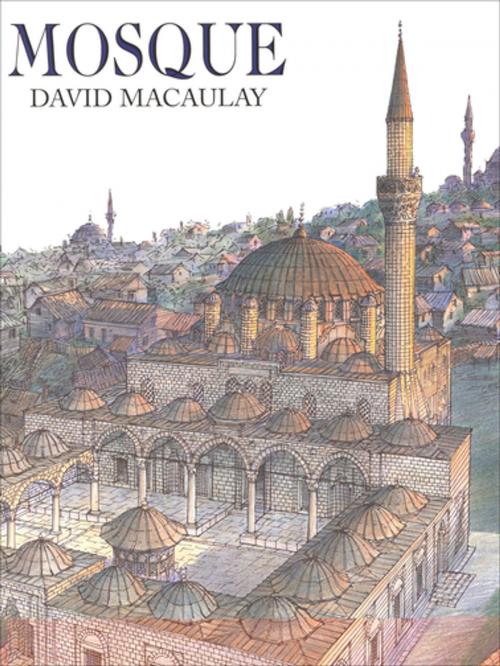Mosque
Kids, Beautiful and Interesting, Architecture, People and Places, Non-Fiction, Europe, History| Author: | David Macaulay | ISBN: | 9780547348292 |
| Publisher: | Houghton Mifflin Harcourt | Publication: | April 28, 2008 |
| Imprint: | HMH Books for Young Readers | Language: | English |
| Author: | David Macaulay |
| ISBN: | 9780547348292 |
| Publisher: | Houghton Mifflin Harcourt |
| Publication: | April 28, 2008 |
| Imprint: | HMH Books for Young Readers |
| Language: | English |
From the award-winning author of The Way Things Work, a remarkable look at how a sixteenth-century mosque would have been built, in words and pictures.
“Gorgeously illustrated . . . Macaulay is renowned for spectacular children’s books with an architectural flavor . . . Mosque is a superbly illustrated and technically engrossing explanation of how a great Turkish mosque complex would be built in about 1600 . . . Frankly, I had no idea that I was interested in how mosques were put together, but I found the subject fascinating. And I learned how to make a brick and build a dome, and also a good deal about the economics of the Ottoman Empire and the role of the mosque in society. Macaulay’s mosque is fictional, but loosely based on those built around Istanbul (then Constantinople) in the late 16th century by Sinan, a great architect of the Ottoman Empire.” —The New York Times
From the award-winning author of The Way Things Work, a remarkable look at how a sixteenth-century mosque would have been built, in words and pictures.
“Gorgeously illustrated . . . Macaulay is renowned for spectacular children’s books with an architectural flavor . . . Mosque is a superbly illustrated and technically engrossing explanation of how a great Turkish mosque complex would be built in about 1600 . . . Frankly, I had no idea that I was interested in how mosques were put together, but I found the subject fascinating. And I learned how to make a brick and build a dome, and also a good deal about the economics of the Ottoman Empire and the role of the mosque in society. Macaulay’s mosque is fictional, but loosely based on those built around Istanbul (then Constantinople) in the late 16th century by Sinan, a great architect of the Ottoman Empire.” —The New York Times















